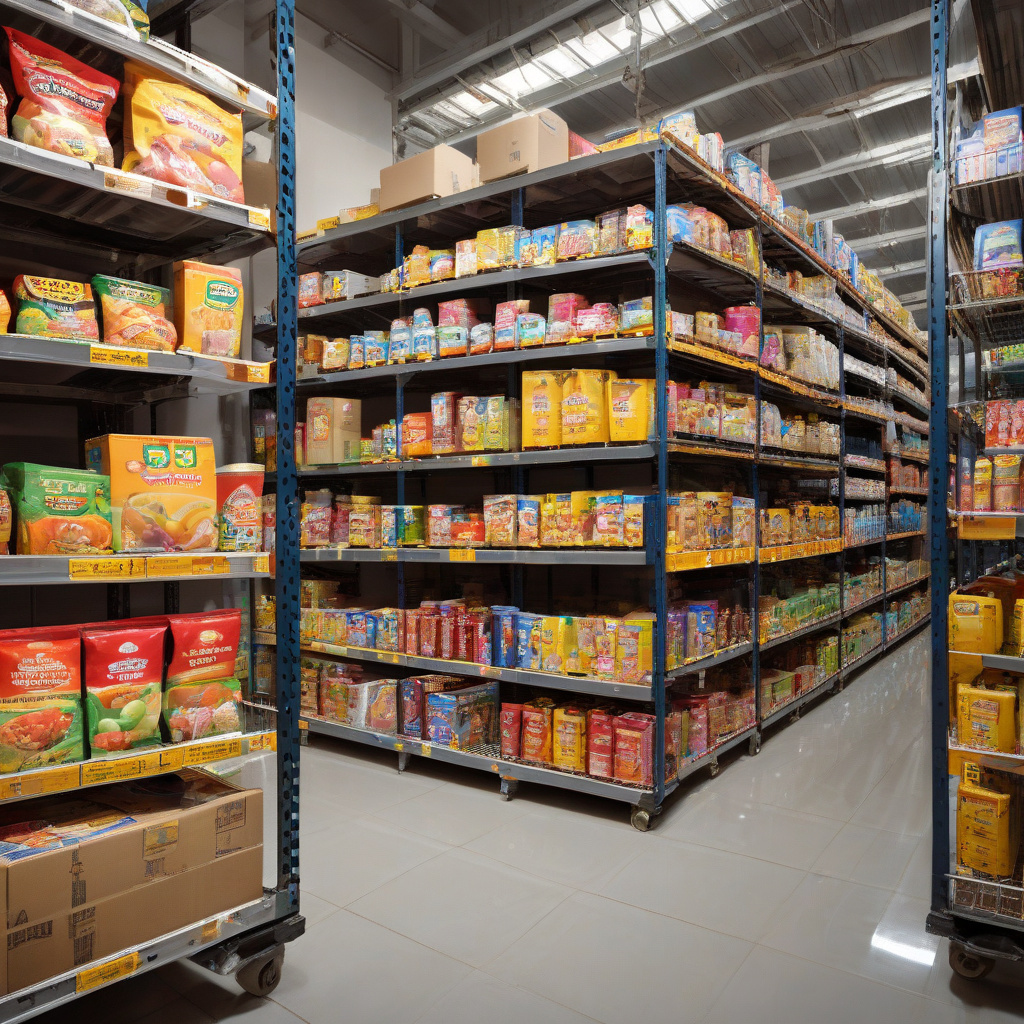FSSAI Lens on 526 Ecommerce Food Storage Facilities
In an era where online grocery shopping has become a staple for many consumers, the Food Safety and Standards Authority of India (FSSAI) has taken significant steps to ensure food safety and compliance in the ecommerce sector. In a recent series of inspections, FSSAI identified violations in 526 ecommerce food storage facilities, raising concerns about food safety standards. These inspections, totaling 8,143, were conducted during the fiscal year 2024-25, highlighting the organization’s commitment to maintaining high standards in the food supply chain.
The importance of food safety cannot be overstated, especially in the rapidly growing ecommerce sector. Consumers expect their food to be safe, nutritious, and free from contamination. With the surge in online food purchases, it has become crucial for regulatory bodies like FSSAI to monitor and enforce compliance among ecommerce platforms and their associated storage facilities.
The FSSAI’s inspections brought to light several issues that need urgent attention. Among the primary concerns were deficiencies in staff training, labeling practices, traceability of food products, and effective complaint handling mechanisms. These areas are critical for ensuring that food products meet safety standards and that consumers can trust the quality of what they are purchasing.
Training is a fundamental aspect of food safety. Employees working in food storage facilities must be well-versed in hygiene practices, food handling procedures, and compliance regulations. The lack of adequate training can lead to mishandling of food products, resulting in contamination and potential health risks for consumers. FSSAI has emphasized the importance of regular training sessions to equip staff with the necessary knowledge and skills to maintain food safety.
Labeling practices also emerged as a significant issue during the inspections. Accurate labeling is essential for informing consumers about the products they are purchasing, including ingredients, nutritional information, and expiry dates. Inadequate labeling can mislead consumers and pose serious health risks. FSSAI has urged ecommerce operators to adopt stringent labeling protocols to ensure transparency and consumer safety.
Traceability is another critical concern highlighted by the FSSAI. The ability to trace food products from their source to the consumer is vital for identifying any potential safety issues. In the event of a foodborne illness outbreak, traceability allows authorities to quickly identify and remove contaminated products from the market. FSSAI has called for improved traceability systems within ecommerce food storage facilities to enhance consumer safety and compliance with food safety standards.
Effective complaint handling mechanisms are equally important in maintaining food safety. Consumers must have a reliable way to report issues related to food quality or safety. FSSAI has identified the need for ecommerce platforms to establish robust complaint management systems that address consumer concerns promptly and efficiently. This not only helps in resolving individual complaints but also provides valuable insights for continuous improvement in food safety practices.
In response to these findings, FSSAI held meetings with operators of the inspected ecommerce facilities to discuss regulatory expectations and the necessary steps to rectify identified issues. These discussions are crucial for fostering a collaborative approach between regulators and the ecommerce sector. By working together, FSSAI and ecommerce operators can create a safer food environment for consumers.
The ecommerce food sector is expected to continue its growth trajectory, fueled by changing consumer behaviors and technological advancements. As this sector expands, so too does the need for stringent food safety regulations. The actions taken by FSSAI to address violations in ecommerce food storage facilities serve as a reminder of the importance of compliance and the ongoing responsibility of all stakeholders in the food supply chain.
In conclusion, the recent inspections conducted by FSSAI reveal significant challenges within the ecommerce food storage sector that require immediate attention. By addressing issues such as staff training, labeling, traceability, and complaint handling, ecommerce operators can enhance their compliance with food safety standards. The proactive measures taken by FSSAI not only protect consumers but also strengthen the overall integrity of the food supply chain in India. As the ecommerce landscape evolves, maintaining high standards of food safety will be paramount for the success and trustworthiness of the industry.
#FSSAI #FoodSafety #Ecommerce #FoodStorage #Compliance
